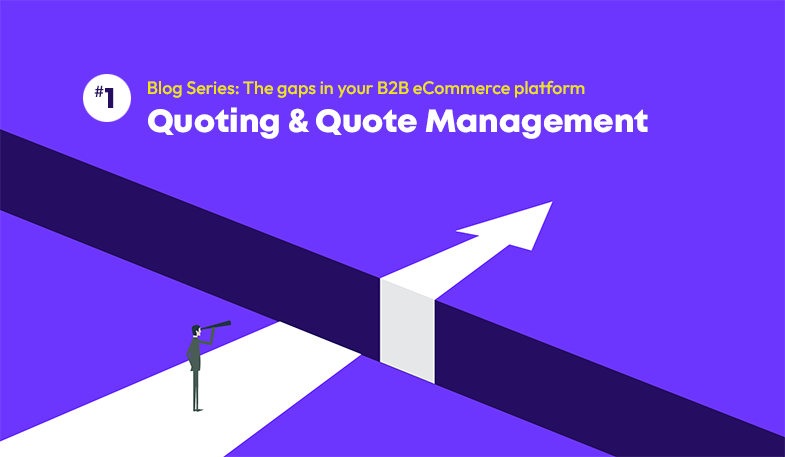What is Product Data and Why is it Important For eCommerce?
What is product data?
Product data is all of the information that is available about a product. This information can be read, measured, and structured into an understandable format using product data transformation and management. The data for each of these products is made up of a collection of product attributes.
What are product attributes?
Product data attributes are what make products distinct and different from each other. These attributes can include functions and features such as size, color, flavor, etc. Product data attributes help consumers determine and identify their options when choosing something to purchase and help companies decide on how to organize their products in-store on shelves or online in catalogs. These attributes can also help organizations to determine their product’s value and competitive advantages.
Organizations can display product data and attributes on product detail pages (PDP). Product detail pages are web pages where information is provided about specific products. The product attributes shown on these pages help consumers to efficiently find products that fit their wants/needs for comparison before purchasing. Greater detailed information about each product increases the chance of purchase, as consumers have a greater understanding of the product’s characteristics. Ensuring these product detail pages are accurate is vital for organizations as they link consumers directly to purchasing the product.
Why is product information important?
Accurate and complete product data is essential to ensure that consumers feel like they can trust companies and their products, especially when buying online. If attributes are missing from the product descriptions, organizations lose credibility with consumers and their products are less likely to be purchased.
When buying in stores, it is vital for salespeople to have as much detailed information available for them to convincingly and truthfully sell products to consumers. This information is also important for Marketers to gain a greater understanding of their gaps and competitive advantages within their current product ranges. This data also helps marketers to advertise their products more effectively on and offline.
In terms of eCommerce, this data is crucial. Having product information that is detailed, comprehensive, and accurate ensures that consumers can easily access and understand the product’s attributes and benefits, making them much more likely to purchase. Having this information also means that companies can create an integrated omnichannel, increasing brand visibility, consumer retention, and turnover.
How do eCommerce tools like PIM and Vesta help with selling and marketing products online?
Product Information Management (PIM) is a set of applications and processes used to acquire, manage, display, and report information across organizations, supply chains, and sales channels. PIM allows information to be enriched to create product catalogs and the distribution of information across eCommerce channels. This is crucial for retail businesses to be able to manage products online. PIM can be incredibly useful in three keys ways:
- Productivity – PIM processes ensure greater product data visibility, providing consumers and organizations with clear and accurate information about products. This ultimately leads businesses to have greater productivity, as they have full control of the product’s lifecycle.
- Efficiency – PIM systems remove old processes such as spreadsheets, which can take thousands of hours to make with high volumes of products. Instead, PIM systems create efficient processes, allowing data to be recorded and accurate while saving vast amounts of time, effort, and money.
- Bringing structure and scale to online information – PIM allows information to be collected and structured so that it can be put to scale and properly understood. Taking large volumes of product data and creating product catalogs (where data is used to group products with different attributes) is a clear example of this. This not only means that organizations can work in a more agile way but also enhances the consumer experience.
But before a PIM system can be productive, efficient, and structured, the information being fed to it must be clean and consistent. This is where Vesta eCommerce comes into hand.
Vesta’s three key processes
connect directly with your PIM system or eCommerce website to feed it with clean, structured product and pricing data updates over time. The three key steps are as follows:
- Collect – Vesta sets up automated workflows to efficiently collect product data and implement updates from suppliers. This process allows companies to effortlessly fetch, store, and update data, saving them huge amounts of time and energy.
- Clean – Vesta will then clean the collected data into a normalized format where inconsistent and duplicate data will be removed. This saves a considerable amount of manual work and makes sure that the data is accurate and ready to be connected with your PIM system or eCommerce platform, where consistency will be shown online.
- Connect – Data accuracy is maintained over time, as changes in price, inventory, or product details are linked directly through Vesta to your PIM system or eCommerce platform (such as Bigcommerce) and updated automatically. This also saves the time and effort it takes having to manually check these changes and edit them online. Having this process automated also ensures that prices and inventory aren’t inaccurate which can lead to distrust and negative reviews from consumers.
In the fast-growing eCommerce industry, being able to use product data effectively is key to creating value and outselling competitors. Utilizing product data efficiently through Vesta and PIM will help build trust with consumers, expand brand awareness, and improve your organization’s sales volumes.
Resource Center

A new blog series about the critical eCommerce capabilities missing in most eCommerce platforms for B2B companies. #1: Quoting & Sales Support

A closer look from the Ultra perspective on what we really mean when we talk about headless commerce and why it may not be right for every company.

Davis Art is now the only online K-12 publisher dedicated to the arts, creating top-notch curriculum and resources for art educators nationwide, all from the Ultra Commerce platform.
